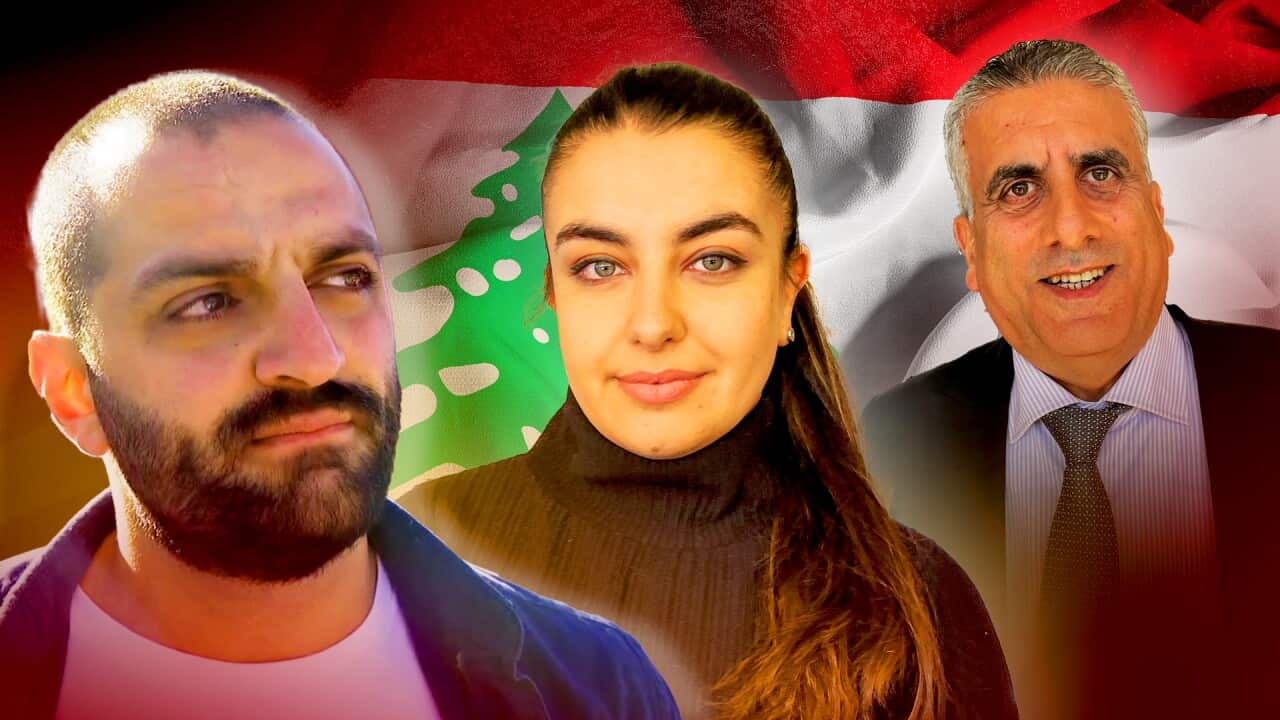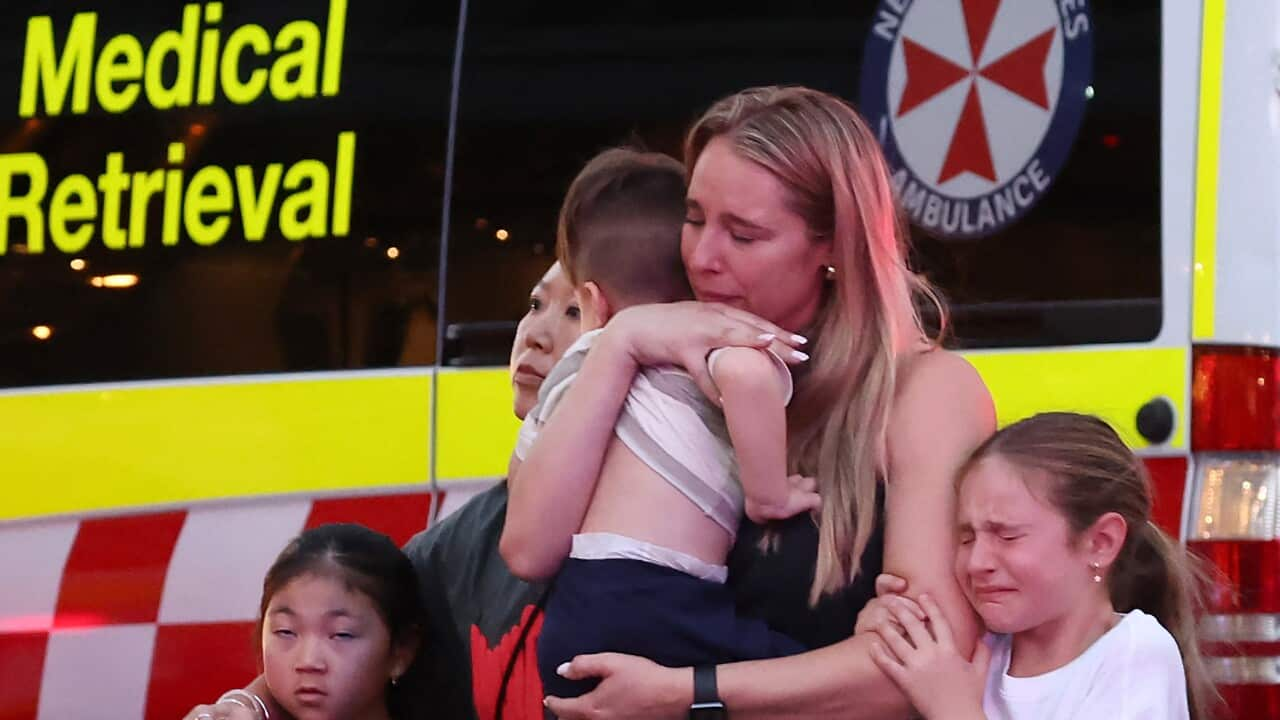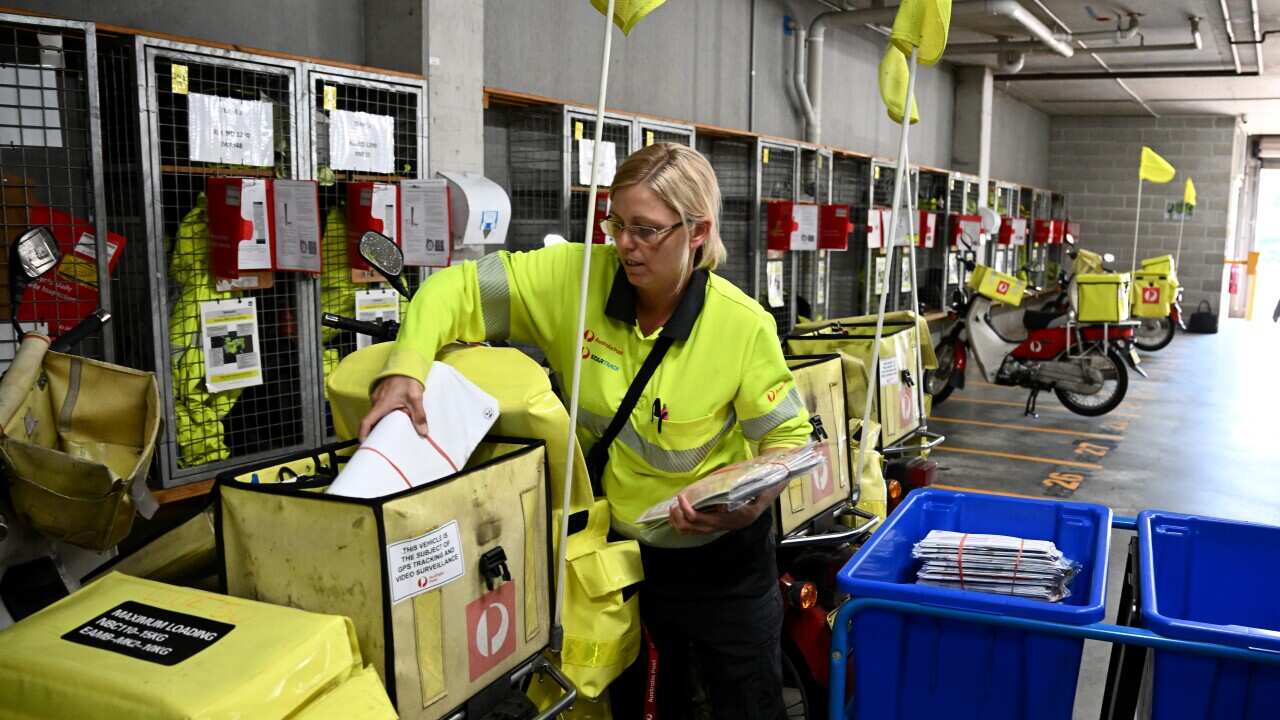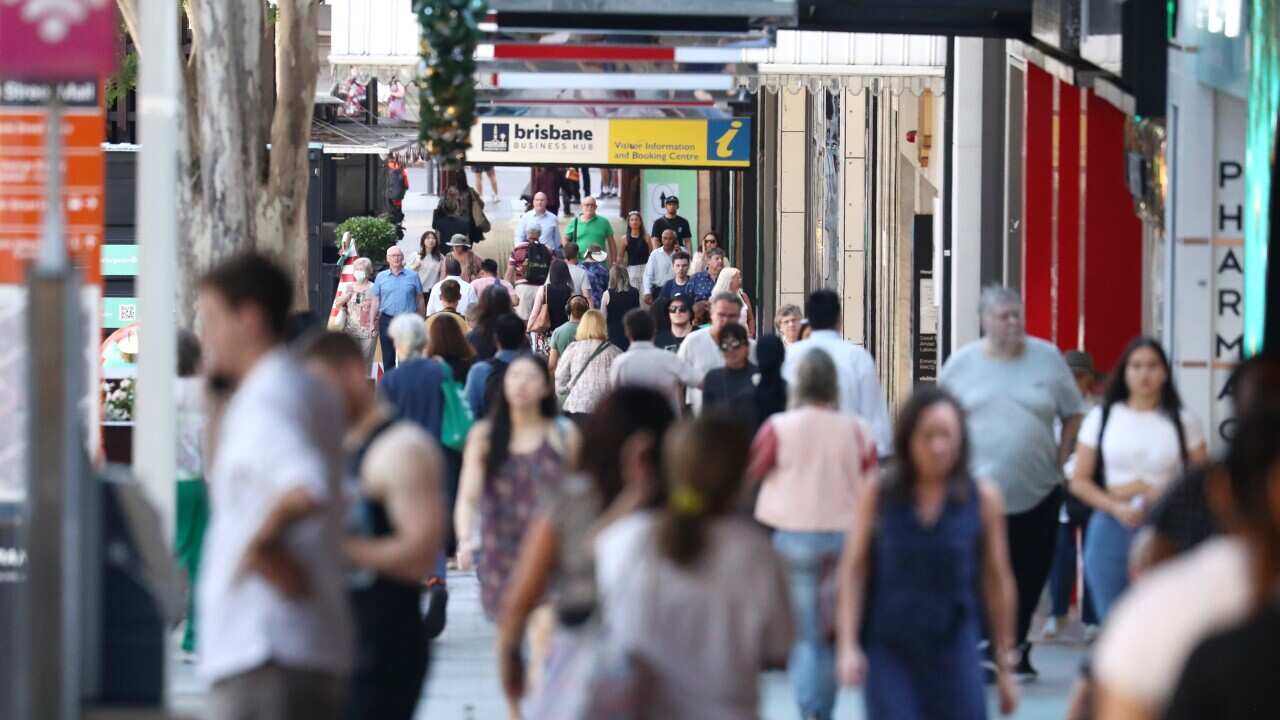Thousands of Lebanese Australians took to the polling stations on Sunday in the hope they will see a shift in power in Lebanon's upcoming elections.
Early voting began in several countries around the world, including Australia, for Lebanese expatriates to vote in the 15 May general election to select the country's parliament.
Hailed as one of the most significant elections in the country's history, it comes off the back of the worst economic crisis Lebanon has seen since the 1800s.
It's also the first time voters will have a say since the 2019 revolutionary protests, known as 'al-thawra', where worldwide rallies erupted in an attempt to change the ruling figures in government.
Then, there was the deadly 2020 Beirut port blast that claimed the lives of 218 people, and left 350,000 displaced.
No one in government has yet been held accountable for that - nor for the mishandling of the country's economy.

There were 14 polling centres across six states and territories in Australia. Source: SBS News
Electricity, too, is rationed for only a few hours each day across the country.
Fuelled partly by anger, frustration and a will to shake up the current government, 244,442 members of the Lebanese diaspora registered to vote in these elections, in a bid to see a change in their home country - that's more than double the registered voters in the last elections in 2018.
'No hope for youth'
Sari Haddad is one of the 11,328 Lebanese expatriates who cast his vote in Australia.
He left his home country shortly after the 2019 protests, he says, to build a better life for himself in Australia. But he still holds on to the political will to see a reborn Lebanon in the future.

Lebanese migrant Sari Haddad, 28, moved to Australia in 2020 after the country's economy collapsed. Source: SBS News
It's estimated there are 18 million Lebanese expatriates around the world - almost triple the 6.7 million people living in the country. The huge diaspora population, he says, is no coincidence.
"No matter how much you grow in this country [Lebanon], you are still limited to what the economic collapse has limited you to."
In April, the International Monetary Fund agreed to grant Lebanon US$3 billion ($4.3 billion) if structural economic reforms are implemented - funds critical for the incoming government to manage the country appropriately.
Sari Haddad says people like himself are keeping a watchful eye on the country's government.
They are motivated, he says, to make change happen sooner rather than later in what he describes as the "post-uprising election".
"Our vote is very important as diaspora because we're sending an important message to the world and to Lebanon that we believe in you and that we can fight and regain this place again," he says.
We're not going to change the country overnight, but this election is our first step to hopefully claim back our country.Sari Haddad
Elie Kaltoum moved to Australia in 1987 after feeling limited in his opportunities following Lebanon's protracted civil war that raged from 1975 to 1990.
Now 63, he describes Australia as "the best country in the world", but has never forgotten where he came from.
"Australia is home, but I never forgot my roots," he said.
Mr Kaltoum's brother and sister remain in Lebanon, along with several other relatives. He says his vote on Sunday was so that they can get a "taste" of what could be.

Elie Kaltoum, 63, moved to Australia in 1987 for a better life. Now, he is voting in the Lebanon election in the hopes a better future lies ahead for its people. Source: SBS News
Fatima Hoblos is a community activist for the global Lebanese diaspora network Meghterbin Mejtemi'in (United Diaspora). She helped mobilise thousands of Australians of Lebanese heritage to vote on Sunday.
She says since the country's significant downfall, she has witnessed a seismic shift in the way that Lebanese people are thinking about politics.
"People are now actually able to speak openly talking about what's happening in Lebanon," she said.
"They're not afraid. They're speaking of change. To me, that's a win."

Fatima Hoblos (left) is a community activist who has been rallying Lebanese-Australians together in unity since the 2019 protests. Source: Supplied / Fatima Hoblos
The role of religion
Lebanon's government is built on a sectarian political system, allowing proportional representation of the 18 different religious sects that exist in the country.
The system was established following the Lebanese Civil War in a masked bid to uphold peace and civility, by allowing power to be shared among the religious factions.
The of the population identifies as Muslim (evenly split between Sunni and Shiite followers, with smaller numbers of Alawite and Ismailis) while around 33 per cent identify as Christian (including Maronite and Armenian Catholic, Eastern and Armenian Orthodox, and Protestant). Smaller numbers - around five per cent - identify as Druze.
For decades, particularly since the end of the Civil War in 1990, members of the Lebanese diaspora - and indeed the residents who remained - have adhered to politicians who represent the religious movement they follow.
The staunch loyalty that these parties enjoy from Lebanese voters, as well as the lacking foundation of non-traditional candidates, are reasons why the same political parties have remained in power for decades.

Large scale billboards in Beirut display independent candidate Melhem Khalaf (left) and former prime minister Saad Hariri (right) who has withdrawn from the election. Source: Getty / JOSEPH EID/AFP via Getty Images
How does the Lebanon election work?
Voters are electing 128 members of parliament, representing electorate districts in the country and shared equally between Muslims and Christians.
Those members hold a vote to elect a president, who must be Maronite Catholic.
The country's president endorses a Sunni Muslim prime minister, who selects a cabinet.
But the prime minister must ensure a majority of confidence in parliament - otherwise, the government will collapse.
The speaker of parliament must be Shiite Muslim.
In Lebanon's last election in 2018, 98 per cent of Australians voted for traditional parties that uphold the sectarian system split between the Christians, Sunni Muslims and Shia Muslims.
But with almost double the amount of voters in Australia this time around - there were only 6,307 voters in 2018 - there is likely to be a shift in where loyalty stands, with a possible lean towards non-traditional candidates.
"It's the change of mindset, it's the dialogue, it's the conversation that's being had amongst people. They are willing to vote outside of their bubble, their sectarian group," Ms Hoblos said.
Appetite for change?
Executive director of independent think tank, the Arab Reform Initiative, Nadim Houry, conducted research on the power of the Lebanese diaspora vote.
Releasing his findings last week, he said there has been a surge of young people who are voting for change amid growing awareness of the lack of accountability from within the government.
"This time around, there was a lot more awareness. Whether this awareness manifests itself in a massive behavioural change at the voting booth, that remains to be seen," Mr Houry said.
He predicts Lebanon will "probably see a weakening of a number of traditional parties", but says they will unlikely to suffer a "massive defeat".
"I think the big question mark ahead of these elections is, will we see the diaspora voting out some of the sectarian and frankly, corrupt political parties that got Lebanon to the situation it's in?"
Ms Hoblos says she isn't naive enough to believe the sectarian government will be voted out this year.
"Let's not live in a utopian world, that we're going to get a majority, that we're going to change everything," she said.

A queue of Lebanese people in Sydney waiting for their turn to vote for the Lebanon election. Source: SBS News
She believes a realistic goal is to oust at least ten traditional leaders from their seats, to be replaced by new members that can contest laws, encourage debate and hold other sitting members to account.
Born and raised in Sydney, Sara Skaf is another voter who cast her ballot in Sydney, trying to vote out the traditional parties ruling the country.
"There is definitely an appetite for people who want change," she said.
She concedes that independent candidates may be outnumbered in this election, but says she will keep exercising her democratic right to see a Lebanon she can go back to.
"Unfortunately, the more conservative parties are well known to a lot, but that doesn't mean we don't have the opportunity ... where we are able to facilitate the changes and hopefully push people to think outside of the square.
"I'm always optimistic and hopeful that Lebanon has better days waiting for it."










